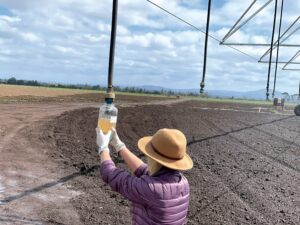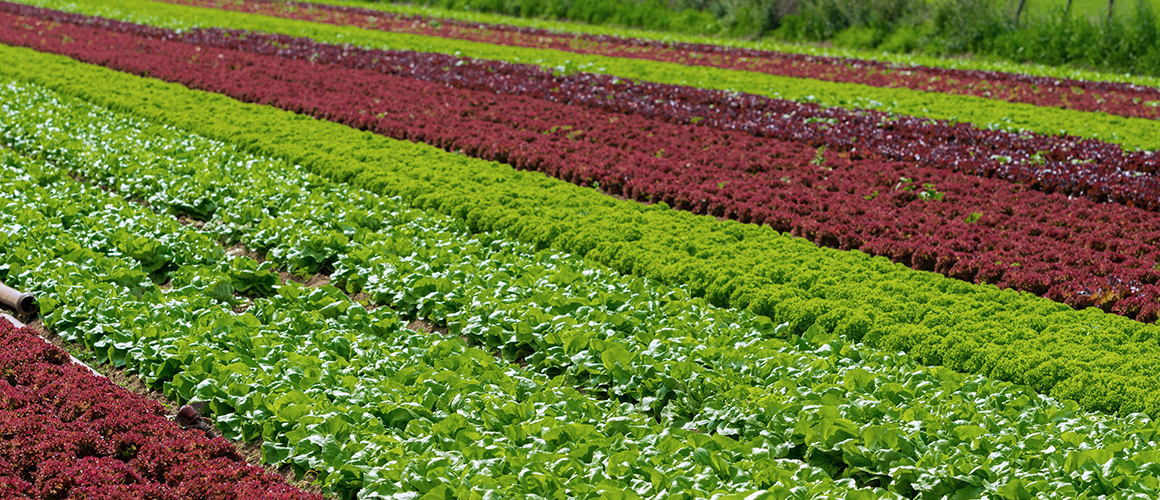Tracking and cutting down microbial contamination in leafy vegetables
In 2025 new food safety standards for leafy vegetables, melons and berries will be coming into effect. Developed by Food Standards Australia New Zealand (FSANZ), the new standard will regulate the production and processing of those crops in the interest of improving food safety for consumers.
Helping growers prepare for the standard is one of the goals of a new levy-funded project, Identifying and managing the sources and routes of microbial contamination in leafy vegetables (VG22002). The project is being run by the New South Wales Department of Primary Industries (NSW DPI) under their ‘Safe Leafy Veg’ initiative.
The new standard
The origin of the new standard is in response to a number of high-profile microbial contamination events in Australia and internationally, explains project lead Dr Sukhvinder Pal Singh, known to most in the industry as SP.
“This standard has been developed by FSANZ to further improve food safety practices in the industry and to create a level-playing field for all growers with its implementation,” Dr Singh explains.
Coming into effect from 12 February 2025, the standard for the vegetable industry is called the Primary Production and Processing Standards for Leafy Vegetables 4.2.8.
“All leafy vegetable grown and processed in Australia will be covered. The definition of ‘leafy veg’ for this standard is any vegetable of a leafy nature that is green and eaten raw, so it covers a whole range of commodities, including all types of lettuces, spinach, Asian vegetables, herbs, cabbage, spring onions, kale, chards etc”.
Regardless of the scale of growing and method of production – field versus protected cropping, soil or hydroponic – this standard applies to all operations involved in commercial growing and processing of leafy vegetables.
“The standard also applies to processing of these, which means if you are trimming, sorting, washing or sanitising, that is all considered processing and falls under the standard,” says Dr Singh.
Getting growers ready
Dr Singh’s new project is largely aimed at getting the industry prepared for the new standard’s introduction in 2025.
“Currently we don’t know the nature and the magnitude of the microbial contamination risk, so this project is looking at how best we can define where those risks are and how big they are,” says Dr Singh.
The project will be collecting data from industry to develop a national snapshot of industry practice to help identify areas which need improvement.
“Industry has been doing a great job in managing food safety risks on farm and post-harvest, so what we’re exploring is the possibility of taking food safety to the next level in preparation for the new standard,” says Dr Singh.
The project will examine the whole leafy vegetable supply chain to identify potential risks, from the farm through post-harvest to retail.
“We will be looking at the potential sources and loads of contamination that are currently unaddressed. We’re looking at a range of pathogens, like Salmonella, Listeria monocytogenes and Shiga toxin Escherichia coli (STEC). The prevalence and distribution of these pathogens will be mapped in production and postharvest systems across Australia. The major focus will remain on microbial contamination routes via soil and water.”
“Once we know the sources and routes of those microbial contaminants, we can address them.”

The project will use the latest technology, such as pattern recognition and whole genome sequencing, to join the dots of where pathogens are sitting and how they are transmitted in the supply chain.
From melons to leafy veg
This project looking at leafy vegetables follows a similar levy-funded project run by the NSW DPI in the melon industry, also led by Dr Singh.
The Safe Melons initiative has helped the melon industry reduce the incidence of microbial contamination significantly, and has been widely considered a success. Ongoing industry-led microbial surveillance is proving effective in real-time verification of food safety controls and best practice adoption. As a result, the melon industry has achieved zero product safety incidents and zero product recalls in the past five years.
Dr Singh’s new project in leafy vegetables will follow the same research, development, and adoption model.
Grower cooperation and confidentiality
Grower involvement is an important part of the project, and the NSW DPI is acutely aware of the need for confidentiality for any information shared with the project by growers. More than 20 growers from major leafy vegetable production regions – Gippsland, Greater Melbourne, Virginia, Riverina, Lower Murray, Greater Perth, and Lockyer – have participated in the project so far and have received business-specific food safety advice.
“We are encouraging growers and processors to come forward and participate in the project and let the team come to their farm and packing operations, look at their practice and collect microbiological samples,” Dr Singh says.
“By participating, you will gain access to the latest research findings and best practices in food safety. Your participation will help shape future food safety guidelines and practices. We respect your privacy, and any information provided will be used in full confidentiality and presented anonymously.”
Any growers who would like to participate in the project can contact SP Singh at the details below.
FOR MORE INFORMATION
Contact Dr Sukhvinder Pal (SP) Singh on (02) 4348 1935 or sp.singh@dpi.nsw.gov.au.
To read a copy of the new standard visit https://tinyurl.com/28ydw32m.

